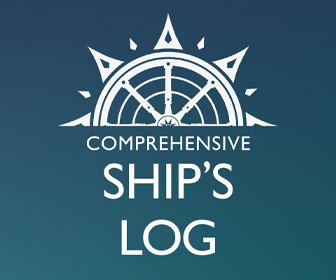New Zealand: French cruisers fined $3000 for concealing pate on board
Reported February 25th by the NZ Herald: A French cruiser who couldn’t part with her pate has become the first person convicted for deliberating concealing biosecurity goods on a visiting yacht.
Published 10 years ago, updated 6 years ago
Read the full report at http://www.nzherald.co.nz/
Sylvia Berthe Barre, 61, appeared in the Kaikohe District Court last week and pleaded guilty to knowingly possessing unauthorised goods and misleading an official.
Mrs Berthe arrived in Opua, Bay of Islands with her husband Remi Barre on their yacht from New Caledonia.
The French nationals are in New Zealand on a three-month holiday visa.
Mrs Barre had hidden six jars of meat pate in clothes in a cupboard, two limes were tucked inside a scarf in a drawer and the emergency bag on the yacht contained one bunch of green bananas, two packets of Spanish ham, one packet of New Caledonian ham and one piece of dried venison.
Ministry of Primary Industries quarantine officers inspected the yacht when it arrived in Opua as part of biosecurity and customs checks.
Mrs Barre had declared that there were no meat or fruit products on board.
She said she was aware of New Zealand’s biosecurity regulations and had deliberately kept the ship’s stores low.
When the inspectors found the delectable stash of food Mrs Barre said she didn’t declare the food because she wanted to eat it. She said she hid the food to avoid officials seizing it.
MPI Manager north cargo Stu Rawnsley said the food items could have been harbouring animal diseases such as foot-and-mouth disease, or pests such as Queensland fruit fly.
“Either could have a devastating effect on the New Zealand economy.”
Mrs Barre was fined $3000.
“The conviction and fine sends a message that yachties will face harsh consequences if they don’t take our biosecurity rules seriously,” Mr Rawnsley said.
MPI stepped up its border controls for visiting yachts in Northland this season following Queensland fruit fly scares in Whangarei last year, including additional quarantine officers that have been brought in to check vessels after the initial inspection is completed.
During the season MPI inspected 381 yachts at Marsden Cove and Opua.
Related to following destinations: New Zealand, North Island (New Zealand), Opua (Bay of Islands)







Hi there @klaussailing – I’m sorry you feel it was xenophobic. As a Brit who has sailed in NZ waters for the past four years, I have always found the authorities fair and impartial. The regulations are strictly enforced for all who come here; the impact of transgressions could be devastating for the NZ economy.
On the evidence of the reported actions, it was especially provocative of the French visitors to conceal produce. I agree with @Wildfox – the rules are well-known, stick to them and be part of the solution not part of the problem. Enjoy sailing in NZ waters – it’s a very beautiful place.
Totally agree!
Well done, and $3000 is very kind regarding an offence which is likely (so goes human nature) to attract a bad name to a whole nation.
Should French-flagged vessels upon arrival in NZ waters be turned upside down by NZ Coasties would I put the blame on then?
No!
NZ protects its beautiful environment, good for them.
@ Klaussailling, if you are not happy with the rules and regulations applying in NZ, you are welcome to go elsewhere.
PS: In case you wonder, I happen to be French, with a good deal of Dutch blood, though.
…we even had to throw away our flour which we needed to bake our bread on board – never experienced such regulations of ‘biosecurity’ as we did in Australia and New Zealand… just ridiculous how xenophobic the authorities are with us Europeans and ‘our’ way of cooking and feeding…
on the other hand, we saw rich Arabic yachts with their provisions of wheat, flour and similar fruits and vegetables as we had which were not touched, destroyed nor mentioned by the authorities – so, if you are rich, do what you please… klaussailing sy bon jour mon amour 2
Well done New Zealand Bio Security. This country of just 4 million people depends on agriculture for its livelihood and they are quite entitled to protect that economy.
It is a pity that the Barres decided to flout well known (and well understood) regulations for their own selfish reasons. This incident will only make life more difficult for future cruisers who will now come under closer scrutiny from the authorities. Cruisers should be building bridges with border guards not making them more suspicious of us.
Anthony sv Wild Fox